Iraq Situation Report: July 19-25, 2016
July 25, 2016 - Emily Anagnostos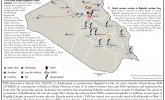
Prime Minister Haidar al-Abadi accepted the resignation of seven ministers on July 19 and July 20, suggesting that PM Abadi will seek to restart the Cabinet reshuffle process.

Prime Minister Haidar al-Abadi accepted the resignation of seven ministers on July 19 and July 20, suggesting that PM Abadi will seek to restart the Cabinet reshuffle process.
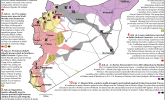
The failed coup attempt in Turkey on July 15 will generate significant upheaval in the Syrian Civil War. Turkish President Recep Erdogan will likely direct his attention inward over the coming months in order to consolidate his power. This distraction will likely disrupt the flow of logistical support provided to opposition groups by Turkey, enabling short-term military gains by a number of actors including Syrian President Bashar al-Assad and the Islamic State of Iraq and al-Sham (ISIS).
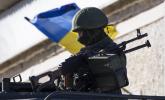
President Putin and pro-Russia actors within Ukraine aim to trigger snap parliamentary elections to bring pro-Russian and populist parties to power and start rebuilding the client regime. ISW assesses that Russia intends to provoke clashes during a large march of Orthodox Christians to Kyiv on July 27 to cause a crisis, to try to set conditions for snap elections. Russia’s military action against Ukraine failed to reverse the political defeat dealt to Russia when the Euromaidan movement came into power in 2014. President Putin seeks to find lower profile methods of regaining control of Ukraine, including exploiting lack of political unity and decreasing public support for the current Ukrainian governing coalition. Bringing Ukraine back to Russia’s orbit is a major strategic objective for President Putin in his efforts to reassert Russia’s power globally.

The U.S. must recognize the risk a NATO ally may become a safe haven for al Qaeda as Erdogan consolidates power. The failed coup attempt by elements of the Turkish Armed Forces on July 15 will enable President Recep Tayyip Erdogan to establish himself as an authoritarian ruler in Turkey.

The Iraqi Security Forces (ISF) seeks to open and maintain operations in western Anbar and Ninewa Provinces in order to eliminate remaining ISIS strongholds in Iraq. Sadrist Trend leader Muqtada al-Sadr led thousands of protesters in Tahrir Square on July 15, giving usual demands for technocratic and anti-corruption reforms.

U.S. Secretary of State John Kerry met with Russian President Vladimir Putin in Moscow on July 14 to discuss a proposal for bilateral military cooperation in the Syrian Civil War. The proposal calls for the establishment of a ‘Joint Implementation Group’ based in Amman, Jordan to “support deliberate targeting” of Syrian Al-Qaeda affiliate Jabhat al-Nusra and “maximize independent but synchronized efforts” against ISIS in Syria, according to a draft memorandum leaked by the Washington Post.
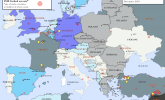
ISIS is pursuing its campaign to punish, polarize, and destabilize the West by inspiring and enabling terrorist attacks in Europe. ISIS likely inspired the terrorist attack in Nice, France on July 15, when a suspect drove his car into a group of civilians celebrating Bastille Day. The attack killed at least 84 and wounded over 200 civilians. ISIS spokesman Abu Mohammed al-Adnani encouraged terrorist attacks on Europe and the U.S. in a speech on May 21.

President Obama announced on July 6 that the U.S. will maintain 8,400 troops in Afghanistan through the end of January 2017 instead of the planned drawdown to 5,500. He then stated that the only way to achieve a full drawdown of forces is to reach a peaceful political settlement between Taliban militants and the Afghan government.
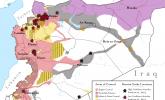
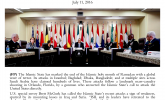
The Islamic State has marked the end of the Islamic holy month of Ramadan with a global wave of terror. Its attacks in Istanbul; Baghdad; Dhaka, Bangladesh; and at multiple sites across Saudi Arabia have claimed hundreds of lives. These attacks follow a landmark mass-casualty shooting in Orlando, Florida, by a gunman who answered the Islamic State’s call to attack the United States directly...